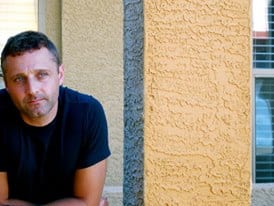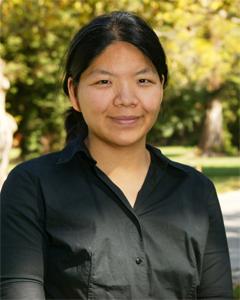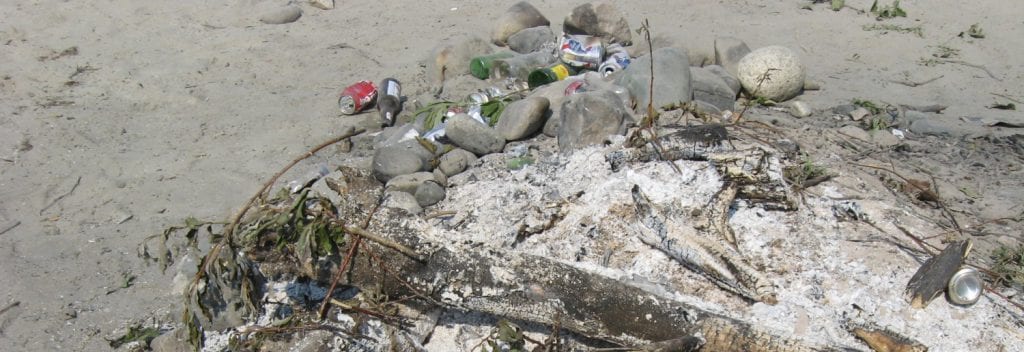By Mika Kennedy, PhD candidate in English, University of Michigan
As are so many stories of the environment (and those who study it), this one is about tributaries, and the rivers they build.
In 2015, my colleague Mary Renda and I and our graduate workshop, The Border Collective, put together a panel for ASLE’s 2015 Biennial Conference in Moscow, Idaho. We hadn’t even touched back down in Michigan before we pitched each other a wild idea: What if we hosted an off-year symposium specifically geared toward graduate students? This is exactly what we did, and last October we were welcoming an international group of graduate (and one stellar undergraduate!) students to our home campus at the University of Michigan for ASLE’s first graduate symposium. This year, we hope to take two panels, stemming discussions begun at the symposium, to the 2017 ASLE Biennial Conference in Detroit.
Large, major conferences like ASLE can be daunting when you’re a junior scholar, and have yet to begin the collegial relationships so many academics fly to conferences to continue–particularly if you hold an identity (or identities) that have historically faced backlash, isolation, or otherness within the larger environment of academia. Even within the fields of environmental studies and ecocriticism, making this leap can it can feel exceptionally difficult if you focus on issues of environmental justice, and the tensions between theory and praxis, center and margins make it difficult to identify one’s scholarly “home.” With these things foremost in our minds, Mary and I wanted to make our off-year symposium an energizing space to share scholarship, meet similarly-oriented graduate students, and push towards a model of academic convening built on inclusivity and accessibility–both of which ASLE has identified as core goals for the organization as a whole.
In practice, these ideals manifested themselves in our open invitation to symposium guests to make their environment their own: Sit on the ground if they prefer it to chairs, take time out when needed (we reserved quiet rooms in which to steal away from the bustle of panels, roundtables, and networking). We laid out guidelines for discussion and interaction, in collaboration with our sister workshop in Disability Studies. We made sure everyone knew where the accessible entryways, gender-neutral bathrooms, and tea/coffee stations were. And particularly because this was a convening of graduate students, and a reality of graduate life is tight budgeting, we made every effort to arrange for homestays and roommate-matching between presenters. We also provided five of the six meals during the symposium, with menus attentive to allergies and other dietary needs, including a variety of protein options–especially at breakfast.
Importantly, and with major thanks to our many sponsors, we were able to award $3000 in scholarships to help lessen the financial burden for students otherwise unable to secure travel funding. (The symposium itself had no registration fee.)
The true value of any symposium, of course, lies in its attendees, and I can say without exaggeration that ours glowed. Representing three different countries, all levels of study–from recently-minted BA-holders to Master’s students to first-year PhD students to those that had achieved candidacy, to MFA choreographers–and too many fields of study to list, participants spent two days in Angell Hall at the University of Michigan (October 21-22, 2016) awash in some of the most interesting and provocative scholarship being produced at the intersection of environment, literature, and the humanities broadly writ. What I found most gratifying about the symposium–while flying around like, well, a conference coordinator–is how genuinely invested in each other’s scholarship everyone seemed to be. People asked questions, shared experiences, and sent upcoming CFPs they thought seemed relevant to each other’s research. They also found space for society and socializing alongside scholarship.

 And this was true not only of our student presenters, but our two keynote speakers and our roundtable of local activists as well. We invited Dr. Julie Sze of UC Davis and Dr. John Blair Gamber of Columbia University to deliver keynote addresses, and both were exceptionally generous with their time and energy, sitting in on student panels and engaging in mealtime conversation, both casual and in more formal lunch workshops about the state of the field, professionalization, and engaging the environment through scholarship and activism (and their confluences). Sze noted at the beginning of her keynote address that her goal in coming was specifically to touch base with and hear from graduate students doing activist and academic work. From our metro Detroit community, Michelle Martinez came both days of the conference, and local activists–Nayyrah Shariff and Laura MacIntyre from Flint Rising; Melvin Parson of Growing Hope, a Ypsilanti farming initiative; and University of Michigan student Noor Ahmad, heavily involved in grassroots student organizing–stayed long into the night talking with participants.
And this was true not only of our student presenters, but our two keynote speakers and our roundtable of local activists as well. We invited Dr. Julie Sze of UC Davis and Dr. John Blair Gamber of Columbia University to deliver keynote addresses, and both were exceptionally generous with their time and energy, sitting in on student panels and engaging in mealtime conversation, both casual and in more formal lunch workshops about the state of the field, professionalization, and engaging the environment through scholarship and activism (and their confluences). Sze noted at the beginning of her keynote address that her goal in coming was specifically to touch base with and hear from graduate students doing activist and academic work. From our metro Detroit community, Michelle Martinez came both days of the conference, and local activists–Nayyrah Shariff and Laura MacIntyre from Flint Rising; Melvin Parson of Growing Hope, a Ypsilanti farming initiative; and University of Michigan student Noor Ahmad, heavily involved in grassroots student organizing–stayed long into the night talking with participants.
Perhaps that all sounds rote–that it should be taken for granted that this is what happens at an academic conference. Ideally, this is all the sort of activity and generosity and academic generativity that defines what an academic conference is. But you and I both know that that’s not always the case. It’s a special thing when that definition gets as deeply realized as I felt it at this symposium, and I could not have dreamed of a more supportive, engaged, invested group of scholars.
A special thing–yet it need not be a rare one. In a world of uncertainties (and increasing environmental vulnerability), one reliable constant is our collective drive to meet these challenges. Conferences like these bring this home by bringing us home, by helping us find each other. Disciplines grow, we change institutions, institutions change, life whorls in generally unexpected and often tumultuous ways. But we can take what we’ve learned, and see what we’ve built, and use it to flow ever-forward in this river.
Turning our eyes to the future, and considerations for future events, we received great feedback post-conference that I’d like to share with those are planning to helm upcoming events: One of our attendees suggested that we make very visible whose lands have allowed us to host this symposium, in order to counter the settler colonial erasures the United States is built upon. In the case of this graduate symposium, the land that hosted us is Odawa (Ottawa), Ojibwa (Chippewa) and Bodewadimi (Potawatomi). It was gifted to the nascent “University of Michigania” in 1817, by the Treaty of Ft. Meigs. To learn more about the history of the University of Michigan and southeast Michigan’s indigenous tribes, click here.
It was also suggested that we make sure to give time to illuminating the various services, invitations, and logistics related to accessibility not only at the opening of the conference, but also at the start of subsequent days of the event, so that those unable to attend the full conference are still aware of things available to them, and practices in use by their fellow attendees.
My many thanks to Mary; the Border Collective; all of our invited speakers and student presenters; our generous sponsors and volunteers; the administrative staff in English and American Culture at the University of Michigan; Amy McIntyre, Cate Sandilands, Aubrey Krug, and Stephen Siperstein with ASLE; and the nice man and his golden retriever–both completely unaffiliated with the symposium–who helped us lug conference materials across campus at dark o’clock on a chilly autumn morning purely out of the goodness of their hearts.
If you missed the symposium and want a taste of what went on, please check out our video recordings of our two keynote addresses and activisms roundtable.
If you’re interested in hosting the next graduate symposium or other off-year conference event, see ASLE’s guidelines for proposals.
For more information about ASLE’s 2017 Biennial at Wayne State in June, visit the conference website.
See you in the river!


